Why are some nonprofits more successful than others? Is it because of funding, perhaps a big pool of volunteers? Similar to a business, a nonprofit’s ability to thrive is not solely dependent on its resources. You may be starting with a modest capital, but with an actionable plan, you can achieve your desired results, and more.
Realize your goals with a well-crafted marketing plan.
A marketing plan is comprised of actions, tasks, and a timeline. It is a playbook on how to undertake outreach and PR campaigns over a period of time, and how to measure the effect of these initiatives. This plan is based on an organization’s marketing strategy. The strategy is the “where” you want to go while the plan is the “how” to get there.
How do you create a marketing plan?

A marketing plan for a nonprofit organization has the following essential elements:
Mission and vision – The mission and vision statements are the guiding principles that define the future of your nonprofit and the decisions you make to reach that future position. These statements highlight your strategic priorities, which then direct your marketing and communications efforts.
A mission statement describes the nature of your nonprofit, your goals and your approach to achieve those goals. A vision statement defines the desired future of the organization. It is important to come up with mission and vision statements that are relevant, effective and aligned with your strategy.
A thorough marketing audit
Before you start designing a nonprofit marketing plan, get a better understanding of your past and current marketing initiatives. Conduct a comprehensive audit of everything you have done so far. This will help you identify your marketing strengths and weaknesses, enabling you to make better decisions in the future.
An essential component of an audit is a SWOT analysis, which will provide a high-level look at your marketing strengths, weaknesses, opportunities and threats.
Feasible goals and priorities
Avoid a common mistake when creating a marketing plan for your nonprofit organization: setting goals that are only good on paper. List down goals that align with your marketing plan based on priority. Eliminate those that do not fit your current resources, both in manpower and funding. Goals that are not feasible are merely wishful thinking. Go for those that you can translate into reality.
Set SMART goals – specific, measurable, achievable realistic and time-bound.
Key stakeholders
After setting your goals and priorities, identify the people that influence your nonprofit the most. Knowing your key stakeholders enables you to understand their motivations and challenges, which is important in developing an effective marketing plan. These influencers may be:
- Board members
- Donors
- Volunteers
- Community members
- Partners
One way of identifying your main influencers is to create stakeholder personas, or the fictional representation of your key stakeholders. These personas will guide your team when interacting with the stakeholders and crafting marketing campaigns to reach them. You can also conduct surveys, focus groups and interviews.
Organization-wide principal messages
Your principal messages are the major points you want your stakeholders to remember about your organization. These summarize the valuable work that you do. Principal messages are those that you always want to communicate with your audience. They help your nonprofit cut through the noise and clutter of the multi-messages flooding the community from other nonprofits competing for support.
Formalized key messages give everyone in your organization guidance in representing your nonprofit accurately and consistently. Clearly describe why your nonprofit was established, your challenges and the impact you are aiming to make.
Tactical selection funnel
How do you market a nonprofit organization? You choose the tactics to realize your marketing goals. Your stakeholders move through phases when deciding to take action such as donating or volunteering. You need to determine the tactics that will most likely help you achieve your goals in each phase.
For instance, you may aspire to convert supporters to donors. The tactics you may use to realize your goal include email nurturing and social media outreach.
After listing the tactics, decide your exact course of action. If you choose social media outreach as a tactic, you should:
- identify the social network to connect with your supporters
- decide the volume of paid and organic content you want to publish
- devise an editorial calendar that will indicate how many times a day you are going to post
- choose the people who will be responsible for the outreach
- decide how much you plan to spend
No need to go too detailed. Let the people in charge of each tactic to brainstorm and explore creative ways to achieve the desired goal.
Marketing calendar
A marketing calendar will specify your marketing initiatives in detail on a monthly basis. It will also indicate the people involved for each initiative and their roles. Map out your activities in a way that will allow efficient implementation. Avoid biting off more than you can chew. You may adjust your marketing calendar as needed. It must be manageable for everyone in your team.
Performance indicators measurement
Your nonprofit marketing plan should transform over time. Your goals and resources will change so your plan should adjust accordingly. Nonprofit marketing best practices include a sort of performance assessment method. The measurement stage of the plan will help you pinpoint what is working and what is not. It can determine the effective campaigns that you should focus on.
Choose the right performance indicators using historical data or data from similar nonprofits. Some of the key indicators commonly used by nonprofits are:
- Growth in donors and donations (year-on-year)
- Donor retention rate
- Social media engagement
- Pledge fulfillment rate
- Fundraising ROI
Success is a journey. As your nonprofit moves forward, you will aspire for new goals, add resources and witness changes in your community. It is important to have a playbook on how to continue improving and achieving your desired results. You need an actionable nonprofit marketing plan. Realize the goals of your nonprofit with a well-crafted marketing plan. Let Creativelab, a specialized unit under ASSIST, guide you through!








